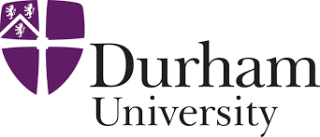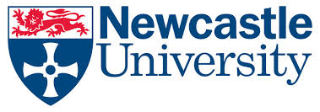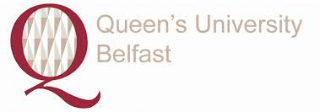Participant reflections
On the 8th and 9th of December 2015, twenty selected arts and humanities PhD students and early career researchers took part the residential workshop, Humanities and the Public Good: influencing public policy through research. You can see the residential school programme here. The participants are pursuing short placement and work experience opportunities with a range of government and third sector organisations, and their reflections on these experiences will be uploaded here over the course of the next six months.
Rachel Hanna, 2nd year PhD candidate, School of English, Queen's University Belfast
I undertook a two-day placement at Research and Information Services (RaISe) for the Northern Ireland Assembly. Prior to the placement, I was assigned the task of writing a briefing note on disabled access policy in Northern Ireland and the Republic of Ireland. I was also given a timetable for the day by Senior Research Officer Eileen Regan, which was very helpful for orientation purposes. When I arrived, I received further support, direction and encouragement from Michael Potter, a Research Officer in RaISe. He also managed to squeeze in a very informative tour of the building, which gave a general insight into the inner workings of a devolved government, as well as a brush up on my Northern Irish history!
Melissa Gardner, 1st year PhD candidate, Department of Classics and Ancient History, Durham University
Parliamentary Trip, 23rd March 2016
On 23rd March 2016, we participated in a trip to parliament as part of Northern Bridge’s ‘Humanities and the Public Good Programme.’ The visit was intended to build on the two-day workshop in December and provide us with further insights into the mechanics of how, as academics and members of the public, we could effectively influence policy.
In the morning, we attended several sub-committee sessions designed to gather evidence for current inquiries. Any member of the public with expert knowledge on an aspect of these inquiries can either volunteer or be called to give oral evidence during one of these sessions, which are also open to the public and the press. The sub-committee then bases its final report and recommendations on the evidence it has gathered. We first visited a lively Treasury sub-committee, where Andrew Tyrie was interviewing Boris Johnson, as Mayor of London, on the EU Referendum. Unfortunately, Boris Johnson did not seem to have many facts at his disposal, but it was very interesting to see how the party politics affected the lines of questioning. We also looked into a more sedate Lords sub-committee, where two charity employees were providing information on the conditions faced by child refugees crossing into Europe. This interview was more indicative of the typical process and demonstrated well how the sub-committees are designed to accommodate and respond to current issues.
After a tour of Westminster in the afternoon, we had time for a brief look in on the House of Commons in session, where issues concerning Scotland were the order of the day. We then met with SNP MP John Nicolson, a relatively new member of the Culture, Media and Sports sub-committee and an avid Tweeter. He was able to offer some fine insights into the benefits and frustrations of the process from the other side of the table. As our final task of the day, we spent some time considering how we would approach a new brief that the Culture, Media and Sports sub-committee is just now investigating entitled ‘Countries of Culture.’ The inquiry is looking into funding models and partnership opportunities for museums outside of London. We considered the rationale behind who should be invited to give evidence, the types of regional outings that would give committee members the most representative view of the situation for museums outside London, and how examples of best practice could best be shared between institutions. The exercise reinforced how much scope there is for academics to contribute to policy making, as we had seen during the residential school, but really also highlighted how difficult it could be to gather an unbiased sample of evidence on such a broad and emotive topic.
The parliamentary trip was an invaluable way to develop and engage with the matters discussed during the residential workshop and to look at the process from outside our academic setting. Elizabeth Flood, the Culture, Media and Sport Committee Clerk, also especially deserves thanks for acting as such a wonderful guide on the day and sharing so much of her knowledge and experience of parliamentary process with us.



